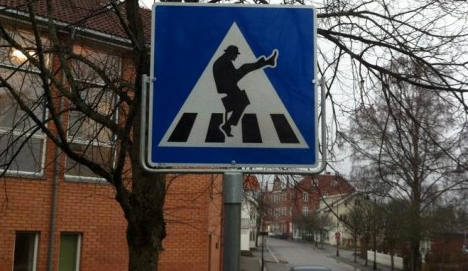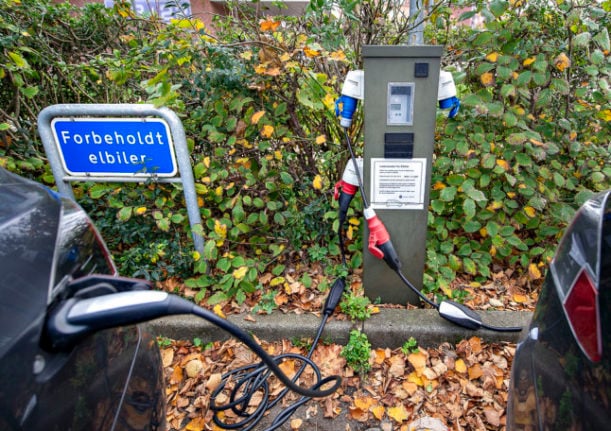ROADS
‘Silly walk’ sign enrages roads agency
The craze for installing doctored comedy signs has reached small-town Norway, with an art collective in Ørje on the Swedish border installing a pair of zebra crossing signs inspired by Monty Python's Ministry of Silly Walks.
Published: 27 March 2014 15:07 CET

Kreativiteket's 'Ministry of Silly Walks' sign in Ørje. Photo: Kreativiteket
"It's just for fun. There's no deep thought behind it," Reidar Johannes Søby from the Kreativiteket art group told The Local. "People live in their ordinary lives and when they see this sign, maybe they can have a little smile on their face. That's all."
The sign, designed to encourage people to use a "silly walk" from the classic Monte Python sketch has the backing of the local council in the Ørje. But the notoriously bureaucratic Norwegian Public Roads Administration is not so amused.
"One should not use signs that can be confused with public signs," section chief Elisabeth Bechmann told NRK.
"They are not very happy about it," Søby said. "They do not seem to have a sense of humour."
Url copied to clipboard!


 Please whitelist us to continue reading.
Please whitelist us to continue reading.
Member comments